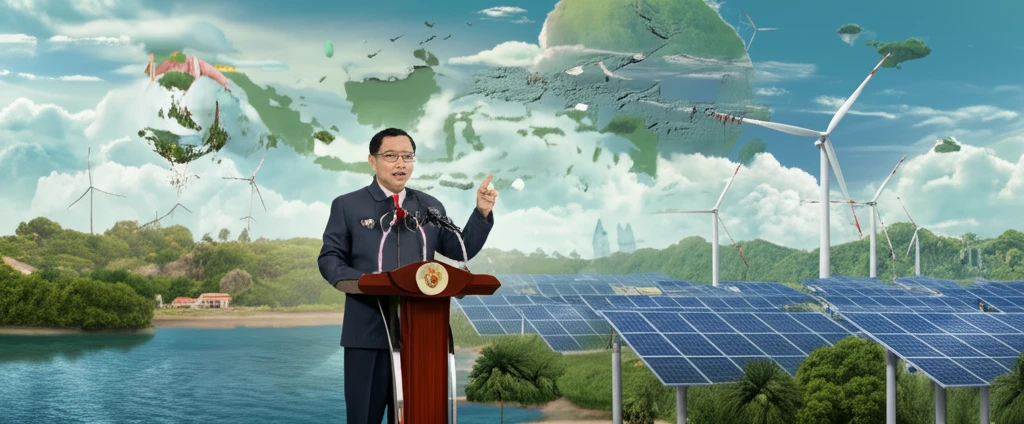
Indonesia's Climate Crossroads: Will New Governors Drive Green Policy?
"Analyzing the vision of Indonesia's elected governors to understand the future of climate change policy and sustainable development in the region."
The global fight against climate change increasingly hinges on local action. As highlighted by the Intergovernmental Panel on Climate Change (IPCC), local governments play a vital role in implementing adaptation strategies tailored to their specific regions. For Indonesia, a nation highly vulnerable to the impacts of climate change, the leadership and vision of its regional governors are critical in shaping effective environmental policy.
In Indonesia, the elected governors hold significant power in determining the direction of regional development. Their vision and mission statements, articulated during election campaigns, directly influence the five-year regional development plans that guide policy and resource allocation. This makes understanding their perspectives on climate change essential for gauging the nation's commitment to sustainability.
This article examines the vision and mission statements of governors elected in early 2017 across several Indonesian provinces. By analyzing these documents, we aim to assess the extent to which climate change and environmental sustainability are prioritized in their agendas, and what this could mean for the future of green policies in Indonesia.
How Do Indonesian Governors View Climate Change?

To understand the potential for climate action, a study was conducted analyzing the vision and mission statements of governors elected in seven provinces during the early 2017 gubernatorial elections. The research employed a qualitative approach, scrutinizing the language used in these documents to identify any explicit or implicit references to climate change, environmental conservation, or sustainable development.
- Explicit Mentions: Only a small number of governors explicitly mentioned climate change or related terms in their vision and mission statements.
- Environmental Awareness: Some governors showed awareness of broader environmental issues, such as deforestation and pollution, but failed to connect these issues to the larger context of climate change.
- Sustainable Development: A few governors emphasized sustainable development in their platforms, suggesting a potential pathway for integrating climate considerations into regional planning.
- Inconsistent Priorities: Overall, the study revealed a lack of consistent prioritization of climate change across the different gubernatorial platforms.
The Path Forward: Integrating Climate Action into Regional Agendas
The study highlights the urgent need for greater awareness and prioritization of climate change at the regional level in Indonesia. To ensure effective climate action, it is crucial for stakeholders to actively engage in the regional development planning process, advocating for the integration of climate considerations into all relevant policies and programs. By working together, Indonesian provinces can pave the way for a more sustainable and resilient future.
